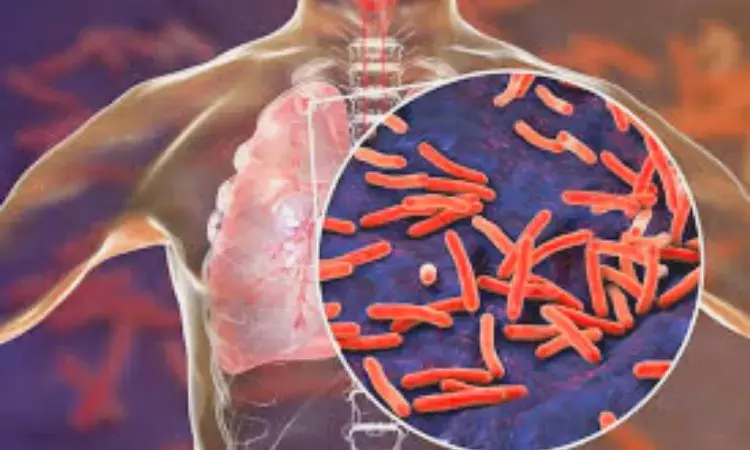- Home
- Medical news & Guidelines
- Anesthesiology
- Cardiology and CTVS
- Critical Care
- Dentistry
- Dermatology
- Diabetes and Endocrinology
- ENT
- Gastroenterology
- Medicine
- Nephrology
- Neurology
- Obstretics-Gynaecology
- Oncology
- Ophthalmology
- Orthopaedics
- Pediatrics-Neonatology
- Psychiatry
- Pulmonology
- Radiology
- Surgery
- Urology
- Laboratory Medicine
- Diet
- Nursing
- Paramedical
- Physiotherapy
- Health news
- Fact Check
- Bone Health Fact Check
- Brain Health Fact Check
- Cancer Related Fact Check
- Child Care Fact Check
- Dental and oral health fact check
- Diabetes and metabolic health fact check
- Diet and Nutrition Fact Check
- Eye and ENT Care Fact Check
- Fitness fact check
- Gut health fact check
- Heart health fact check
- Kidney health fact check
- Medical education fact check
- Men's health fact check
- Respiratory fact check
- Skin and hair care fact check
- Vaccine and Immunization fact check
- Women's health fact check
- AYUSH
- State News
- Andaman and Nicobar Islands
- Andhra Pradesh
- Arunachal Pradesh
- Assam
- Bihar
- Chandigarh
- Chattisgarh
- Dadra and Nagar Haveli
- Daman and Diu
- Delhi
- Goa
- Gujarat
- Haryana
- Himachal Pradesh
- Jammu & Kashmir
- Jharkhand
- Karnataka
- Kerala
- Ladakh
- Lakshadweep
- Madhya Pradesh
- Maharashtra
- Manipur
- Meghalaya
- Mizoram
- Nagaland
- Odisha
- Puducherry
- Punjab
- Rajasthan
- Sikkim
- Tamil Nadu
- Telangana
- Tripura
- Uttar Pradesh
- Uttrakhand
- West Bengal
- Medical Education
- Industry
Latent tuberculosis infection tied to increased diabetes risk: Study

USA: A recent study in the journal Diabetes Care has suggested that people with latent tuberculosis infection (LTBI) are at an increased risk of developing diabetes.
Cross-sectional U.S. studies have shown that diabetes patients are at twice the risk of latent tuberculosis infection versus those without diabetes. However, it is not known if LTBI is a contributor to diabetes risk. To fill this knowledge gap, Matthew J. Magee, School of Public Health, Georgia State University, Atlanta, GA, and colleagues aimed to determine if LTBI is associated with increased diabetes incidence using longitudinal data.
The researchers conducted a retrospective cohort study among U.S. Veterans receiving care in the Veterans Health Administration from 2000 to 2015. All patients without preexisting diabetes who received a tuberculin skin test (TST) or interferon-γ release assay (IGRA) were eligible for the study. Those with a history of active TB and those diagnosed with diabetes before or within 2 years after LTBI testing were excluded. Patients were followed until diabetes diagnosis, death, or 2015.
LTBI was defined as positive TST or IGRA. Incident diabetes was defined by the use of ICD-9 codes in combination with a diabetes drug prescription.
Based on the study, the researchers found the following:
- Among 574,113 eligible patients, 5.3% received both TST/IGRA, 79.1% received TST only, and 15.6% received IGRA only.
- Overall, 6.6% had LTBI, and there were 2,535,149 person-years (PY) of follow-up after LTBI testing (median 3.2 years).
- The diabetes incidence rate (per 100,000 PY) was greater in patients with LTBI compared with those without (1,012 vs. 744; hazard ratio [HR] 1.4).
- Increased diabetes incidence persisted after adjustment for covariates (adjusted HR [aHR] 1.2) compared with those without LTBI.
- Among patients with LTBI, diabetes incidence was similar in those treated for LTBI compared with those who were not treated (aHR 1.0).
The authors conclude, "comprehensive longitudinal data indicate that LTBI is associated with increased incidence of diabetes. These results have implications for people with LTBI, ∼25% of the global population."
Reference:
Matthew J. Magee, Anjali Khakharia, Neel R. Gandhi, Cheryl L. Day, Hardy Kornfeld, Mary K. Rhee, Lawrence S. Phillips; Increased Risk of Incident Diabetes Among Individuals With Latent Tuberculosis Infection. Diabetes Care 2022; dc211687. https://doi.org/10.2337/dc21-1687
Dr Kamal Kant Kohli-MBBS, DTCD- a chest specialist with more than 30 years of practice and a flair for writing clinical articles, Dr Kamal Kant Kohli joined Medical Dialogues as a Chief Editor of Medical News. Besides writing articles, as an editor, he proofreads and verifies all the medical content published on Medical Dialogues including those coming from journals, studies,medical conferences,guidelines etc. Email: drkohli@medicaldialogues.in. Contact no. 011-43720751


